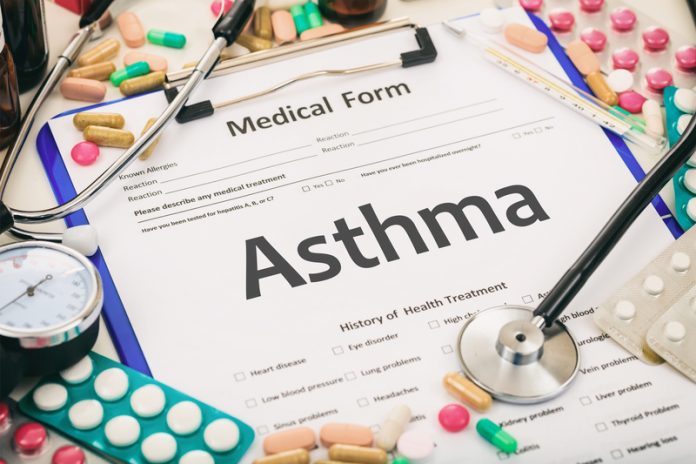Susanna Palkonen of the European Federation of Allergies and Airways Diseases Patients’ Associations underlines research on asthma in Europe today
Asthma is a common chronic disease that causes inflammation of the smaller airways of the lungs (bronchioles). The disease can develop at any age, although very often it starts at childhood. Asthma is the most common chronic disease in children, leading cause of school absences, emergency visits and hospitalisations in Europe. It accounts for more than €70 billion annually.
Recent research has confirmed that asthma not only appears because of simple predisposition to develop it, but it can also be linked to environmental factors, like exposure to air pollution or to tobacco smoke during pregnancy.
Everything contributes to our respiratory health
To decrease asthma rates and provide better care for patients, governments need to promote policies that include respiratory health concerns everywhere.
In the case of the European Union, there is a wide spectrum of policies impacting asthma care and prevention that go from chemicals exposure to tobacco consumption and marketing, and from medical devices approval to the management of indoor air quality. A European Parliament Interest Group on Allergy and Asthma works to embed asthma considerations into sectoral policies beyond healthcare.
Although no cure has been found for asthma yet, we know measures that are effective in controlling symptoms. The European Union has a clear role to play to reduce asthma. For example, EU institutions are adopting mandatory prevention standards to improve air quality by reducing the emission of pollutants from transport and industry sectors. However, still some progress needs to be done towards the establishment of a smoke-free Europe – implementing the WHO Framework Convention on Tobacco Control -, or the establishment of a pollen monitoring system, both measures implying better health and savings.
We also hope that the EU will reinforce its labelling rules to better inform consumers about their choices, especially in those products that might impact asthma and respiratory patients, like cleaning products, fragrances and cosmetics.
Patients need to be at the core of asthma research
Our knowledge about asthma has increased in the past decades leading to the development of important therapies to control the disease. However, those therapies have demonstrated their limitations in many patients, especially those with severe or difficult-to-control asthma, who experience a lower quality of life and are even scared to die.
Independently of its severity, asthma as most of the chronic diseases depends on having the right treatment at the right time. While researchers have clustered data to better understand the underlying causes of the disease and develop treatments, the scientific community is now calling for a clinical redefinition of the methods to diagnose and control asthma.
A leading group of pneumologists proposes a further revision and measurement to find out how exactly asthma develops in our bodies and what is happening in our lungs. They are calling for a deeper analysis of the patients’ demographics, daily life and management of their disease.
In short, we see their positioning as a global call to put patients at the centre of medicine, while developing disease-specific measurement guidelines to propose personalised and more effective medicine, and we think this is the only consistent way to optimise asthma treatment and prevention, and improve patients’ quality of life and, indeed, finding the cure.
The future management plan is digital
While personalised medicine promises to improve health outcomes, it needs tangible changes to operate. First and foremost, a safe and secure data privacy environment, to enable patients to safely share health data to model and predict disease changes. Governments would need to fully embrace eHealth possibilities, allowing to move from face-to-face consultations and paper health records to virtual assistance from healthcare professionals alert settings for out-patient care but also matching health budgets towards digital healthcare, including fair honorariums for healthcare professionals across diseases and reimbursement for patients. The European Union has the opportunity to lead European countries on this with policy, tools and innovative projects, like the ongoing myAirCoach mobile application to help patients keeping up with their asthma from a smartphone.
Like our former President Breda Flood, who has severe asthma, said: “After decades of having asthma I am only now starting finally to control asthma, knowing that my lungs are permanently damaged”. At EFA we work to spare patients from going through everything people like Breda had to.
[1] EARIP Project (European Asthma Research Invest Partnership) Final Report Summary, December 8 2016, (Last accessed 3/10/17): http://cordis.europa.eu/result/rcn/192382_en.html
[1] Interest Group on Allergy and Asthma, EFA-EAACI (Last accessed 3/10/17): http://www.efanet.org/what-we-do/ep-interest-group-on-allergy-and-asthma
2 “Smoke-free environments”, European Commission (Last accessed 3/10/17): https://ec.europa.eu/health/tobacco/smoke-free_environments_en
3 “More Europeans will be allergic to pollen if no measure is taken to reduce exposure”, EFA Press Release July 2, 2015 (Last accessed 3/10/17): http://www.efanet.org/resources/library/2732-press-release-international-ragweed-day-2015
4 “Global Atlas of Asthma”, EAACI, 2013, (Last accessed 3/10/17): http://www.eaaci.org/GlobalAtlas/Global_Atlas_of_Asthma.pdf
5 U-BIOPRED Project – Unbiased Biomarker’s in PREDiction of respiratory disease outcomes (Last accessed 3/10/17): http://www.europeanlung.org/projects-and-research/projects/u-biopred/home
6 « After asthma: redefining airways diseases”, The Lancet, September 11, 2017 (Last accessed 3/10/17): http://thelancet.com/commissions/asthma
7 MyAirCoach Project – Analysis, modelling and sensing of both physiological and environmental factors for the customised and predictive self-management of Asthma (Last accessed 3/10/17): http://www.myaircoach.eu/
Susanna Palkonen
Director
European Federation of Allergies and Airways Diseases Patients’ Associations
Tel: +32 (0)2 227 2712











